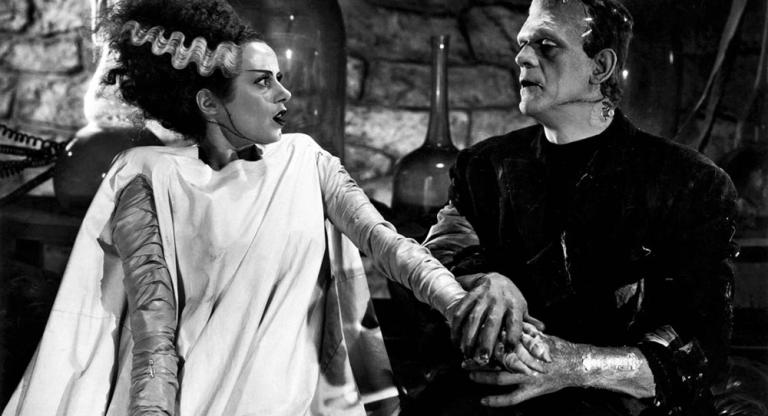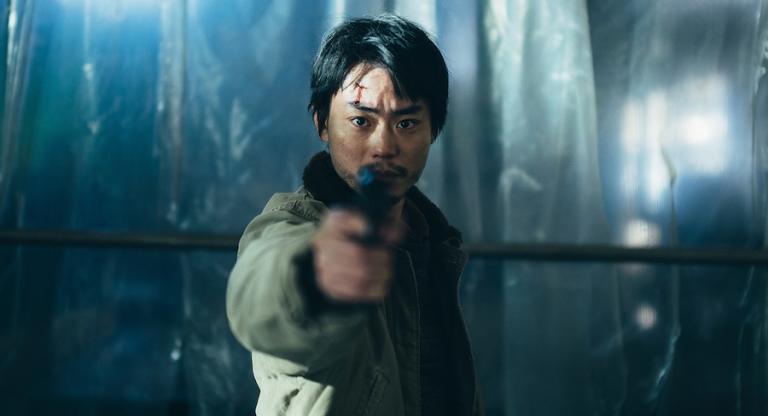Larry Fessenden’s contemporary riff on the Frankenstein myth, Depraved (2019) stars David Call as Henry, a field medic with a major case of PTSD that manifests itself as a need to bring dead soldiers back to life. Henry is an intelligent, thoughtful guy who knows the story of Frankenstein (mentioning it by name, even!) and its tragic ending, but thinks he could be the guy to do it right. Thus, he creates life with the help of his benefactor, pharmaceutical heir Polidori (Joshua Leonard), giving his first successful specimen the “corny” name Adam and teaching him the basics: how to walk, the effects of gravity, and how to play table tennis. Finally, Henry is back to saving soldiers—and what’s more, he’s made himself a friend. But as Adam learns, and begins to regain the memories of his brain donor, he becomes ungovernable, and tragedy ensues (Mary Shelley is shaking her head from beyond the grave).
Depraved is typical of Fessenden’s low-key horror style—it mostly takes place in a Brooklyn warehouse—with a few welcome visual flourishes, like neon synapse flashes as Adam becomes human and trippy, gauzy dream effects. Fessenden, at his core, is always interested in the people inside the horror tropes: think of the city vampires of Habit (1995), the child terrorized by the titular Wendigo (2001), or the scientists facing the deadly consequences of climate change in The Last Winter (2006). Henry comes back from the war with such all-consuming grief and guilt that he is compelled to murder strangers in order to keep the bodies of soldiers alive. It’s a creepy little film, but it’s also a nuanced, almost tender character study of two men (one dead on the inside, one actually just dead) dealing with unimaginable trauma—in between the murders, of course.
Depraved screens at 4:30pm this afternoon, April 17, at the Museum of Modern Art as part of the series “Oh, the Humanity! The Films of Larry Fessenden and Glass Eye Pix.”




